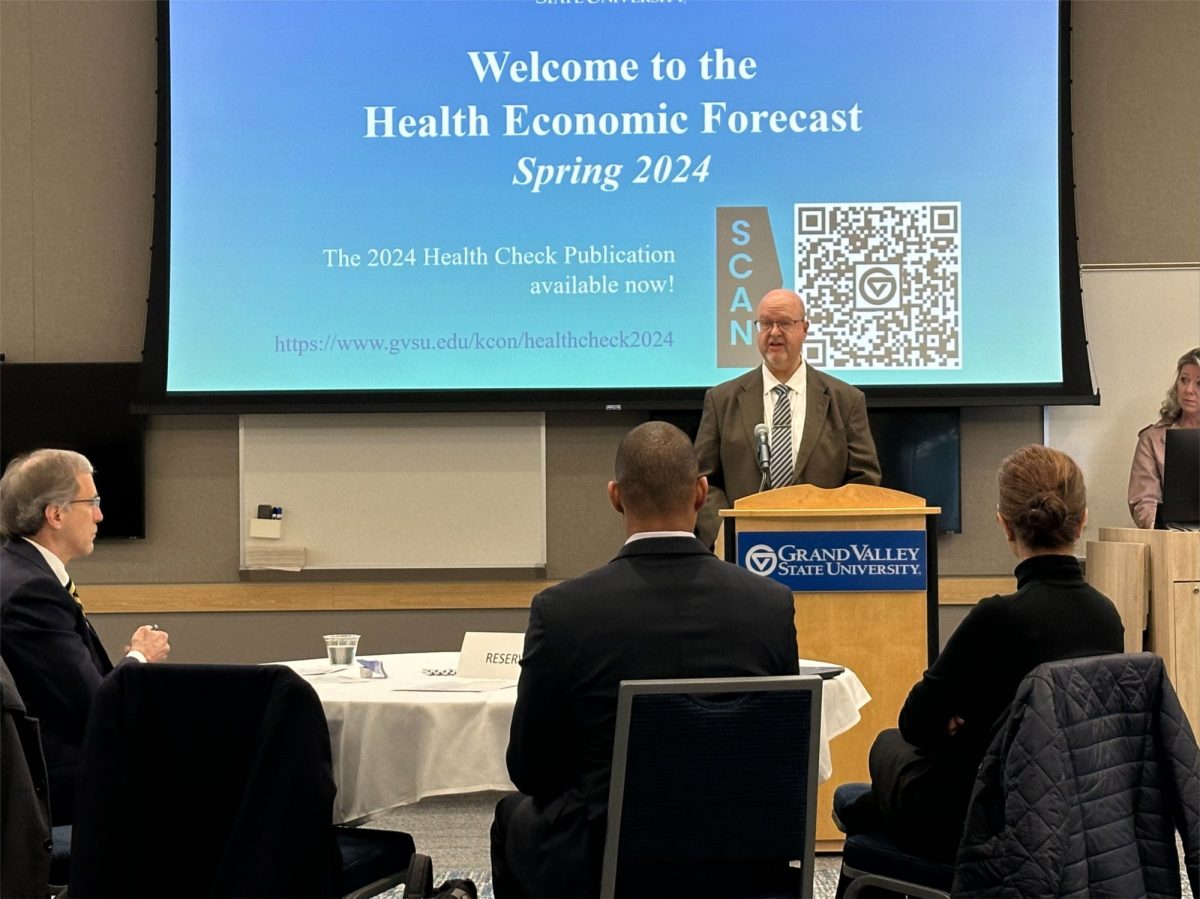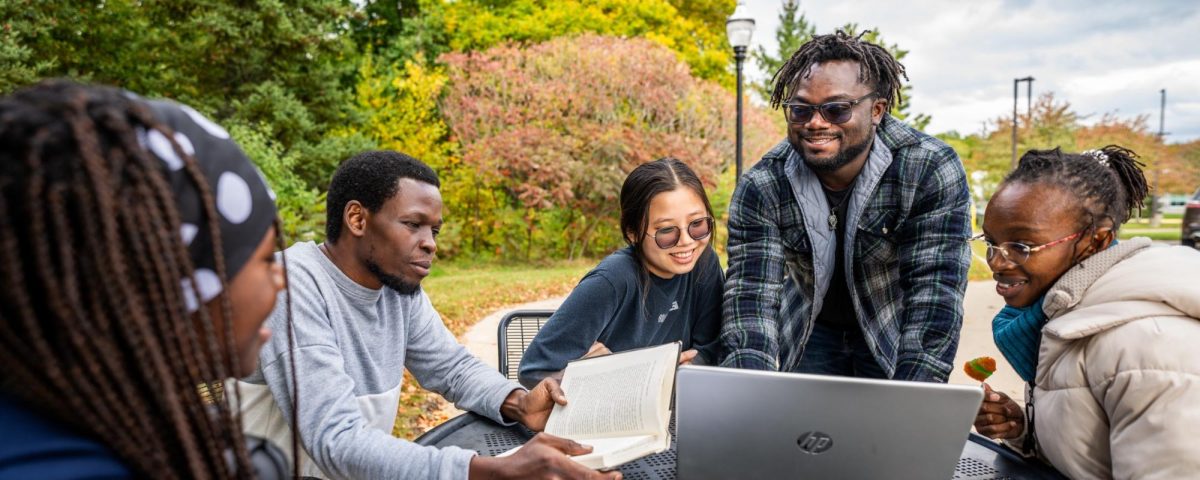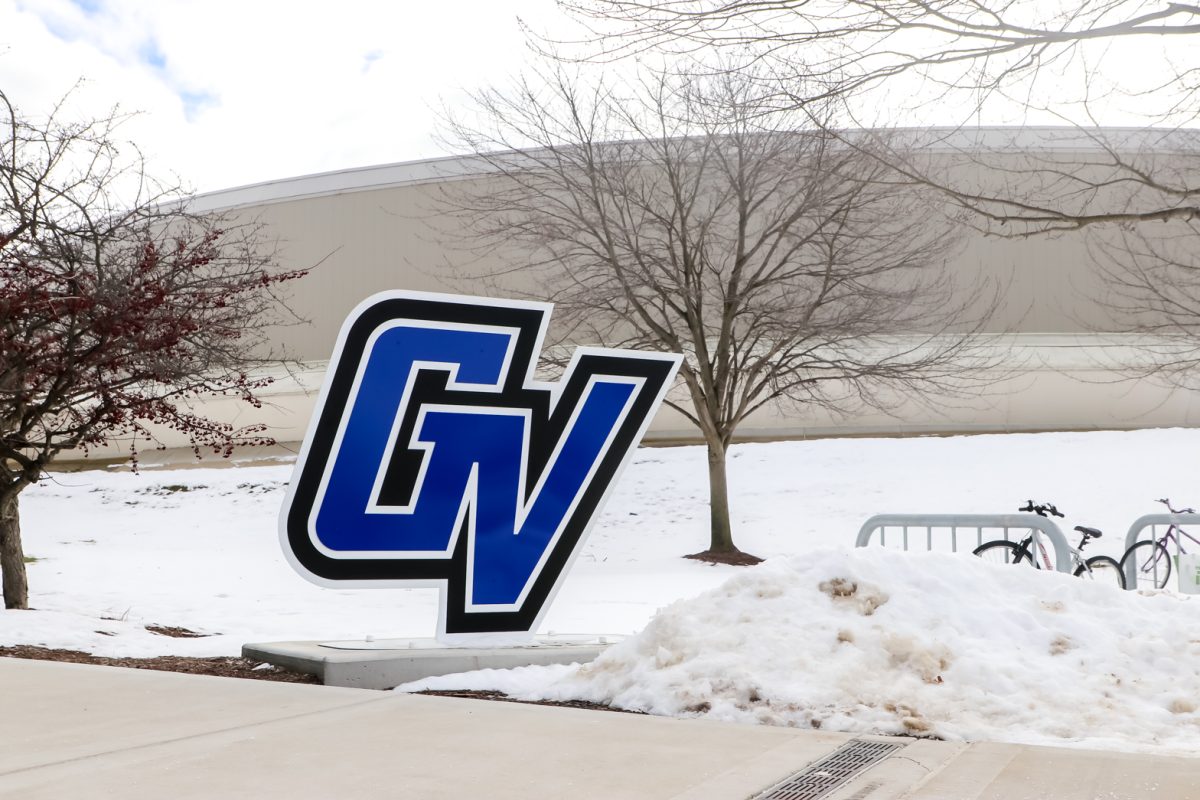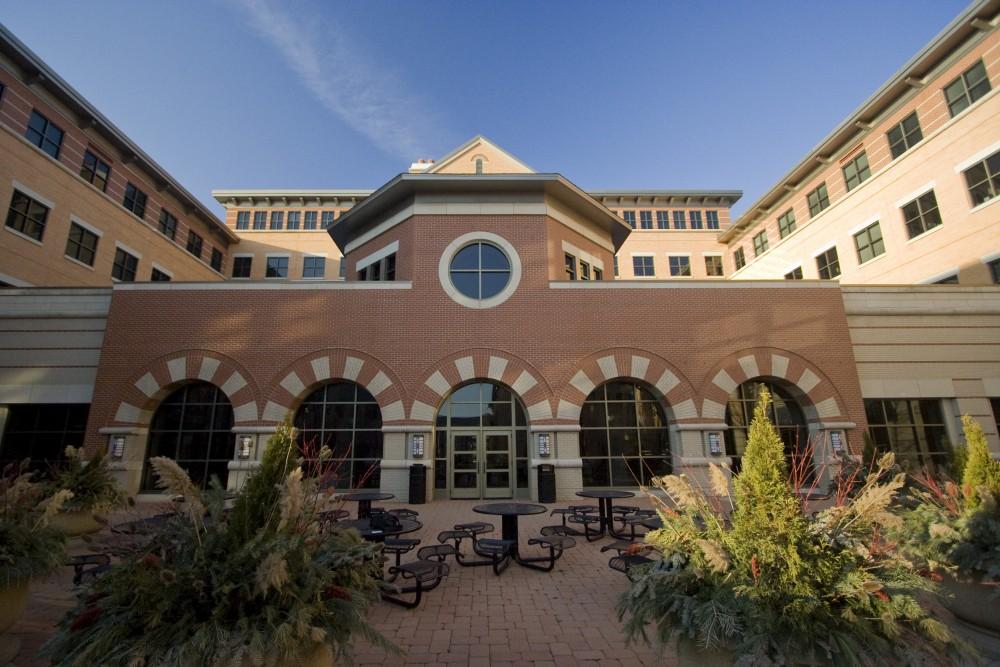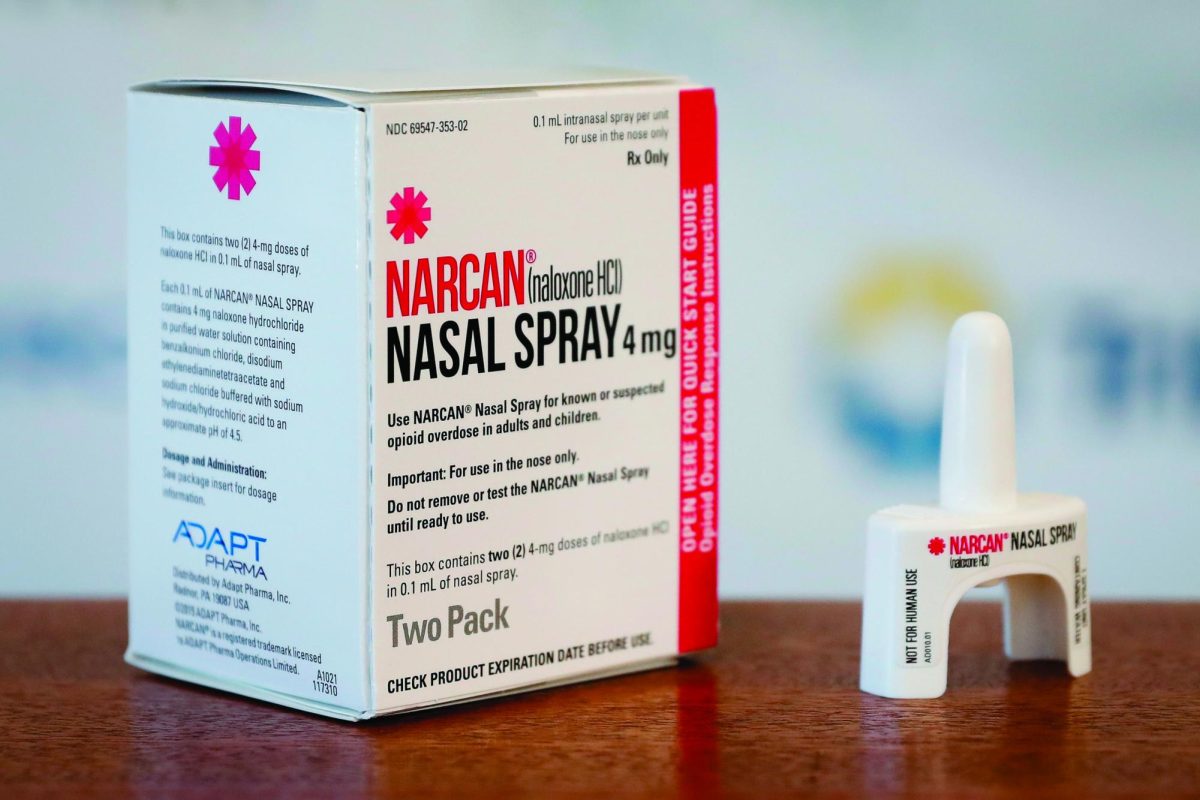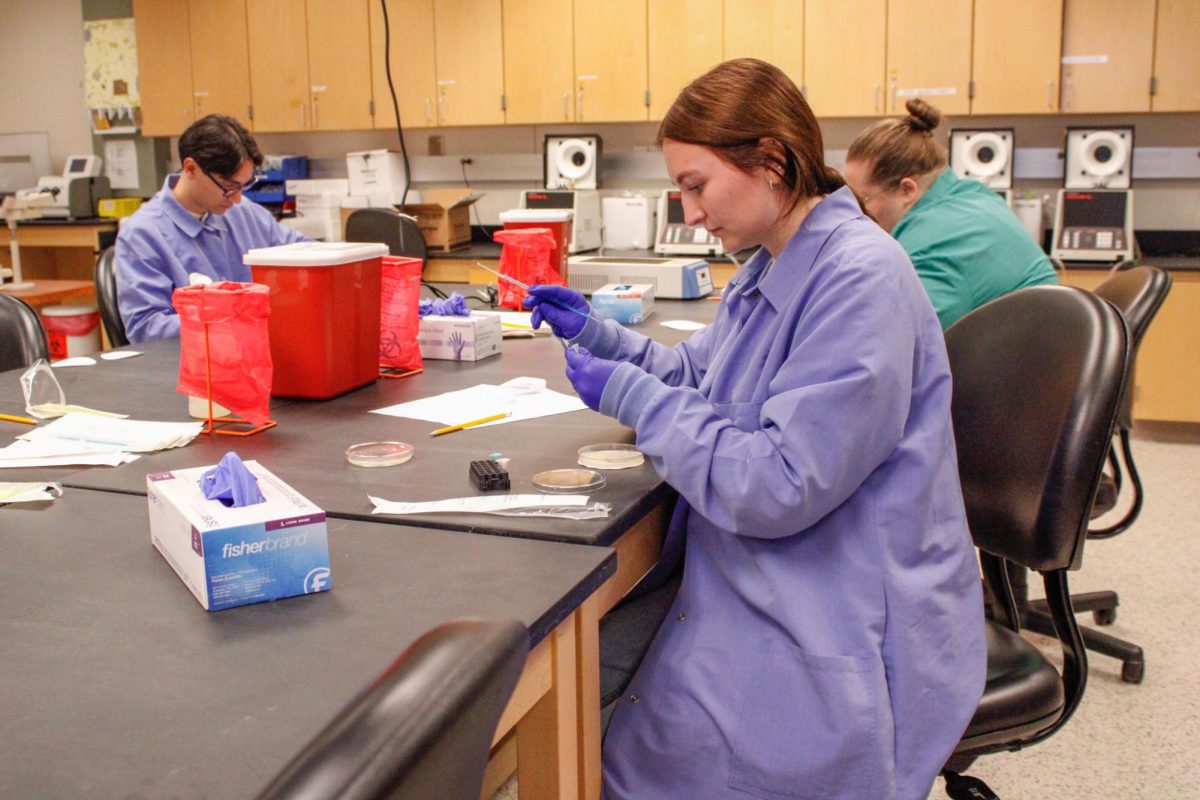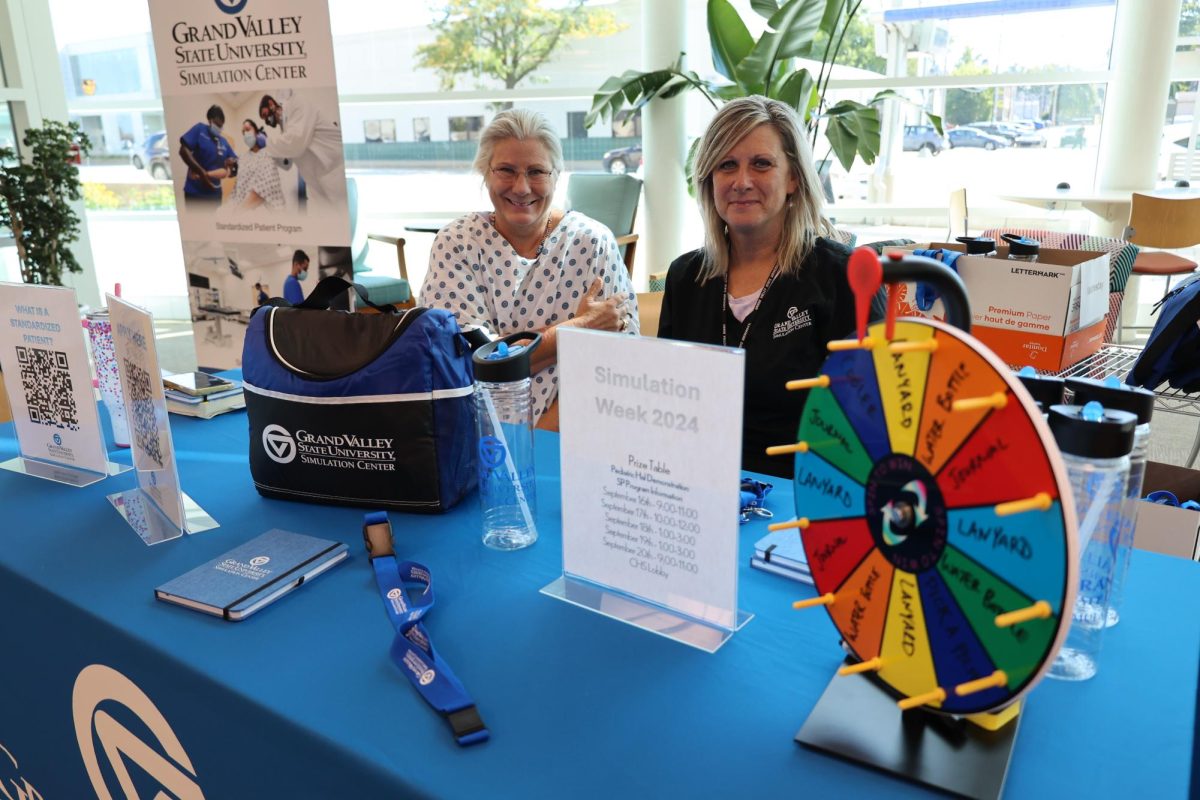Research shows mental health is declining throughout Michigan, particularly since the COVID-19 pandemic. At the 15th annual West Michigan Health Care Economic Forecast on Feb. 9, Grand Valley State University professors attended to present their research in the accumulating Health Check for 2024. The conference was held at the DeVos Center for Interprofessional Health in Grand Rapids and was hosted by GVSU’s Kirkhof College of Nursing and Seidman College of Business.
Erkmen Aslim and Daniel Montanera, assistant professors of economics at GVSU, looked at variables that are indicative of the mental health status within communities like the number of poor mental health days individuals reported. Their research concluded the overall decline of mental health takes form in various ways including a higher suicide rate, a rise in opioid overdoses and an increase in emergency room visits. Many students agree they can identify with the results of the survey and advocate for adequate mental health services in the area and on campus.
What is now a state-wide issue was previously localized to Detroit. However, Grand Rapids is now experiencing a new level of emergency department visits that is comparable to Detroit, according to GVNext. Factors contributing to the increased emergency visits include the COVID-19 variants as well as a rise in mental health-related visits.
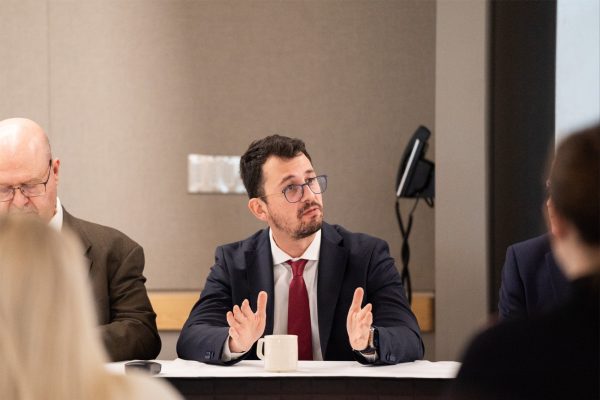
Mental health trends are important to consider because they show patterns that relate to the capacity for individuals to thrive and contribute to a community in a meaningful way. In this case, the patterns are reflective of the state of Michigan entirely.
Many students said they feel that they experience moderate levels of anxiety and depression, which fluctuates with their stress levels. Students also shared that the pandemic took a toll on their wellness status but highlighted how not having as many “adult” responsibilities took some of that stress away.
Holistic self-care is one-way students approach mental health. This means managing physical health, mental and emotional stress, getting proper sleep, having a safe environment and other similar activities. The Director of Prevention and Community Education at GVSU’s Counseling Center, Melissa Selby-Theut, said proactively taking care of yourself is a great preventative method for mental health struggles.
“Attending to all areas of our wellness – spending time with people we care about, moving our bodies as able, eating foods that fuel us, and taking care of our holistic needs,” Selby-Theut said.
People can also attend to work and school-related stressors and how to manage them. Selby-Theut said everyone works differently, so it can be helpful for students to take note of their habits.
“If you work best or are most productive in the mornings, make sure you schedule your day that way. If you’re a night owl and prefer to work late into the evening, that’s okay as long as it doesn’t compromise your sleep,” Selby-Theut said. “If attending a student group or spending time with friends brings you joy, create space for them amid the other important things in your life– like schoolwork.”
Taking care of scheduling and social life ties back to mental health. GVSU offers several resources that provide support for students. The University Counseling Center offers free services to GVSU students, including self-help materials, group counseling, individual counseling and referral to local providers, in addition to emergency response and community outreach. All students who reach out are seen for an initial screening appointment within two business days.
If you or someone you know is experiencing a mental health crisis, please visit the counseling center’s website for emergency resources.




